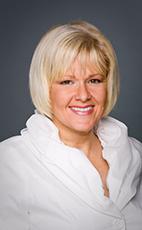Mr. Speaker, it is my privilege to rise today on behalf of the official opposition to speak to Bill S-10, an act to amend the Parliament of Canada Act respecting the establishment of a parliamentary poet laureate.
On behalf of the Canadian Alliance, the notion of a poet laureate certainly appeals in a civilized sense to the beauty of the spoken word. We on this side of the House are probably more sensitive to the spoken word because in the political forum we call question period our words are swords with which we do justice on behalf of the Canadian people every day. It is with considerable interest that we in the official opposition view anything in parliament that has to do with the spoken word.
I wish to speak to the hurt the spoken or written word can inflict on others, particularly when it is used for malicious intent. I refer to a magazine article that was recently published in an Ottawa city news magazine. The writer's story was about a murder trial in my riding of Renfrew—Nipissing—Pembroke. It has taken on a certain sensationalist reporting, much in the style of the popular U.S. tabloids. I wish to read into the official record what the news magazine had to say about the beautiful rural community in which the murder took place.
The community is not one of those nice little towns that dot southern and eastern Ontario. It is more like a rural freak show—a railway town without a railway—where most people make their money in the fall either by catering to deer hunters or by bringing in the marijuana harvest from up in the hills behind the village. Many of the older residents are the simple Ottawa Valley folk who are the butt of so many recycled Newfie jokes—
I wanted to read this fictionalized garbage into the record, and there is more, to emphasize the emotional effect that words can have on a listener. When I read this hate literature, and I use the term sparingly because I know it is a powerful term and I do not intend to minimalize anyone else's experience with hate literature, I felt immediate contempt, if not downright disgust for a publication which would slander an entire community for the sake of a few dollars in the guise of being a news magazine.
Once that spoken or written word is distributed it becomes easier for the next media to come along and build on the original myth. This article was followed by a shot at the entire Ottawa valley community under the veil of humour by the tax dollar funded national broadcaster when in its program The Royal Canadian Air Farce suggested that inbreeding was a cottage industry in Ontario ridings held by Canadian Alliance members.
I have a problem with public servants disguised as journalists, or in this case a poet. I would expect safeguards to be built into the position of poet laureate. Poets have the ability to stir up powerful emotions in the same way as a writer. As we consider the office of poet laureate, we must be cognizant of this fact. Is this position intended to unify us as a nation or is it intended to stir us up?
I have read with great interest the debates in the other place regarding the bill. There are many more questions in my mind than time will allow today. I have great difficulty with the proposed legislation which goes to the very heart of what we are discussing.
Is the position of poet laureate appropriate in a country like Canada that has evolved into a multicultural mosaic? I make this point because in the examples of those countries such as Great Britain which have created positions of poet laureate, they are very dissimilar to our experience in that theirs is a monocultural experience.
The observation has been made that it is appropriate for there to be one poet laureate. Should there not be two to reflect the bicultural nature of our institutions? While that may reflect the English-French diversity, what about the first nations people? This past century has been characterized by a migration that is neither French nor English. We are a work in progress when it comes to the society we are building in the northern half of this continent.
Do we as parliamentarians want to associate ourselves with one voice that will not be able, by virtue of the way that the craft of poetry is reflected, to reflect the nation we have become in the 21st century?
I believe it was stated in the other place that leadership depends upon individual voices leading. What the position would be able to achieve would depend upon what leadership and what voices. I fear that a poet laureate would be constrained by the official position and so defeat the purpose for which it was intended.
I commend the sponsors of the bill for the spirit in which the proposal has been brought forward. I look forward to continued debate on the subject.

